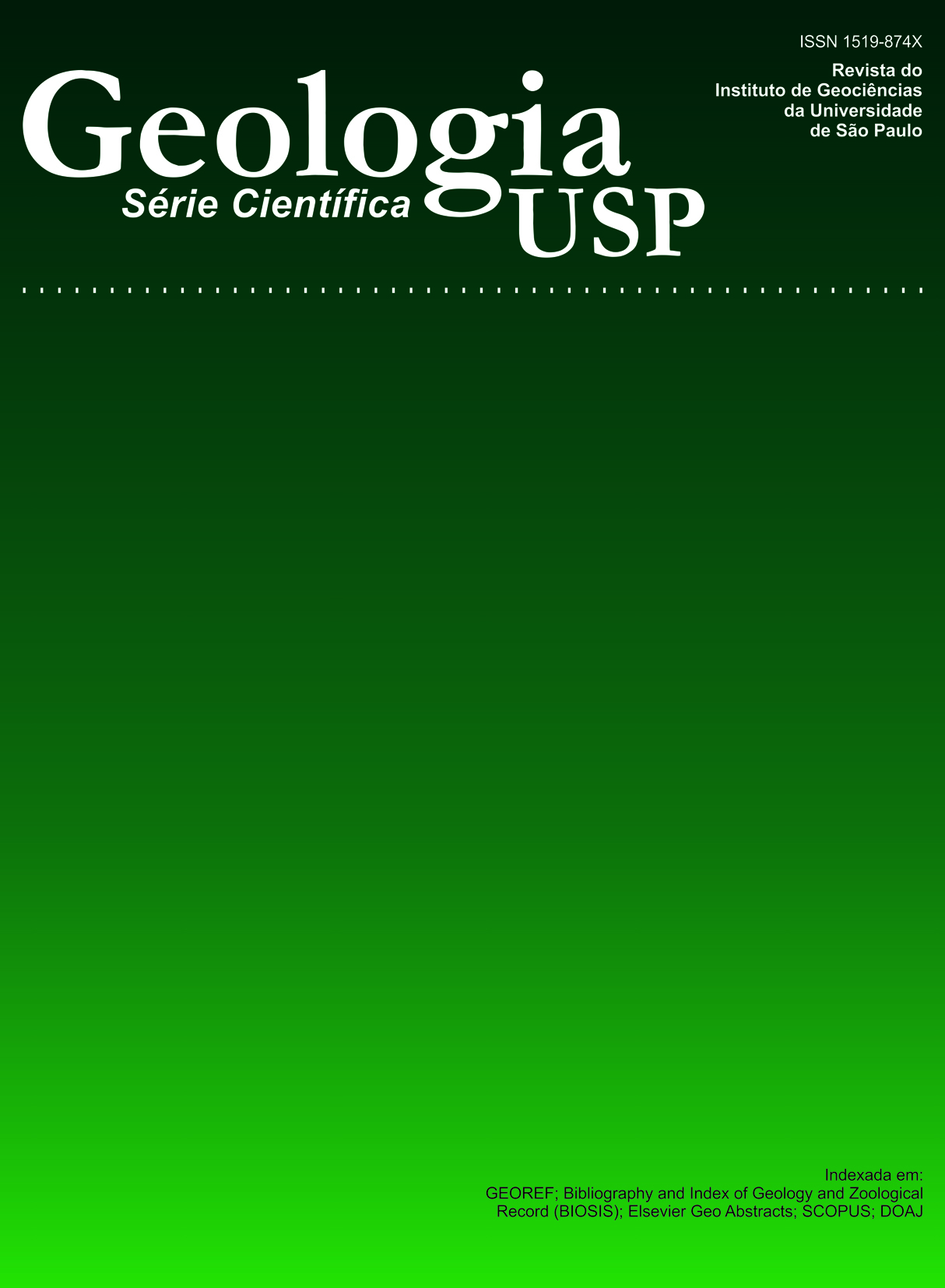Metacryphaeus rotundatus, um novo elemento da fauna de trilobites calmoniidae (phacopida), da formação Ponta Grossa (devoniano), bacia do Paraná, Brasil
DOI:
https://doi.org/10.5327/Z1519-874x2008000100002Keywords:
Metacryphaeus rotundatus, Calmoniidae, Trilobita, Apucarana sub-basin, Paraná basinAbstract
Calmoniids (Delo, 1935) are the most common and abundant group of trilobites of the fossil record of the Devonian Ponta Grossa Formation in the Apucarana sub-basin. Although known since the past century, the study of calmoniids has been taxonomically and stratigraphically biased. This is because some authors centered their studies on some particular genera from a few stratigraphic horizons within the basal portion of the Ponta Grossa Formation. The analyses of 398 specimens of calmoniid trilobites of the rocks of Jaguariaíva Member of the Ponta Grossa Formation, mainly from Tibagi county in the state of Paraná, Brazil, indicate the presence of specimens that are referable to Metacryphaeus rotundatus (Kozlowski, 1923). This is the first record of M. rotundatus in Brazilian Devonian rocks. Metacryphaeus rotundatus is a conspicuous species of the Emsian rocks of the Icla Formation, Bolivia. Although the affinities of the trilobite fauna of the Devonian Paraná Basin, in the context of the Malvinokaffric realm, are with the Brazilian and South Africa provinces, this finding is in accordance with new evidence (e.g., conulariids, homalonotids trilobites), indicating the presence of cosmopolitan species with Andean affinities. Metacryphaeus rotundatus lived in a broad paleoclimatic range, from a temperate, cold temperate to a subpolar climate. Finally, in the Devonian of the Paraná Basin, M. rotundatus lived and were preserved in muddy, organic rich bottoms, deposited in offshore waters, below the storm wave base, associated to marine flooding surfaces.Downloads
Download data is not yet available.
Downloads
Published
2008-04-01
Issue
Section
Articles
License
Authors who publish in this journal shall comply with the following terms:
- Authors keep their copyright and grant to Geologia USP: Série Científica the right of first publication, with the paper under the Creative Commons BY-NC-SA license (summary of the license: https://creativecommons.org/licenses/by-nc-sa/4.0 | full text of the license: https://creativecommons.org/licenses/by-nc-sa/4.0/legalcode) that allows the non-commercial sharing of the paper and granting the proper copyrights of the first publication in this journal.
- Authors are authorized to take additional contracts separately, for non-exclusive distribution of the version of the paper published in this journal (publish in institutional repository or as a book chapter), granting the proper copyrights of first publication in this journal.
- Authors are allowed and encouraged to publish and distribute their paper online (in institutional repositories or their personal page) at any point before or during the editorial process, since this can generate productive changes as well as increase the impact and citation of the published paper (See The effect of Open Access and downloads on citation impact).
How to Cite
Soares, S. P., Simões, M. G., & Leme, J. de M. (2008). Metacryphaeus rotundatus, um novo elemento da fauna de trilobites calmoniidae (phacopida), da formação Ponta Grossa (devoniano), bacia do Paraná, Brasil . Geologia USP. Série Científica, 8(1), 14-24. https://doi.org/10.5327/Z1519-874x2008000100002





